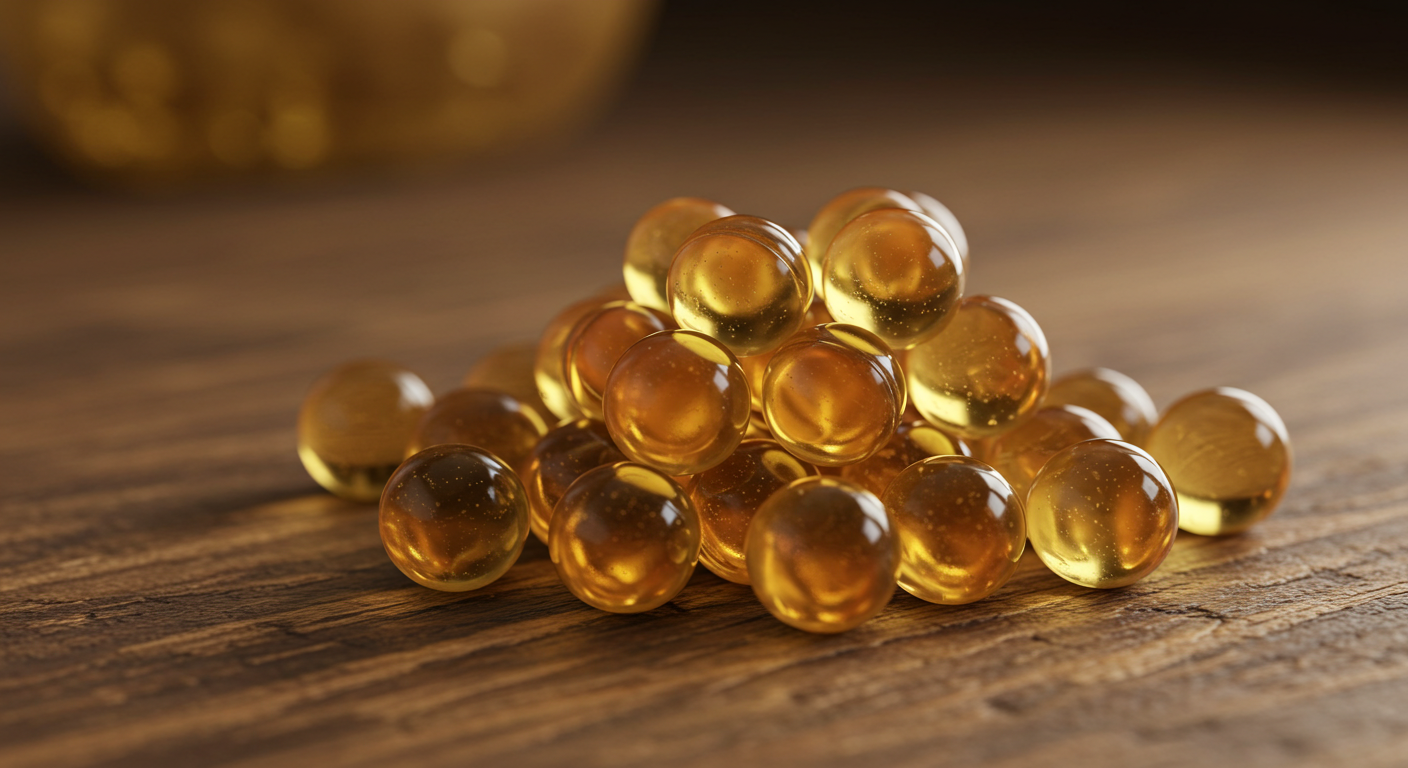Dr. Kumar’s Take:
This systematic review looked at whether vitamin K supplements can slow down the hardening of arteries—a process called vascular calcification. The study found that vitamin K, especially K2 (menaquinone), may help reduce the buildup of calcium in the coronary arteries and improve levels of a key blood protein called dp-ucMGP. While not all studies showed benefits, the overall data suggest vitamin K might be a safe and simple strategy to support vascular health, particularly in people at high risk for heart disease or kidney issues.
Key Takeaways:
✔ Vitamin K supplementation slowed the progression of coronary artery calcification (CAC).
✔ Blood levels of inactive MGP (dp-ucMGP), a marker of vitamin K deficiency, dropped significantly with supplementation.
✔ No increase in adverse events was seen in people taking vitamin K.
Actionable Tip:
If you’re at risk for heart disease or have kidney problems, ask your doctor if adding vitamin K2 to your routine could help support your vascular health—especially if your diet is low in fermented foods or leafy greens.
Brief Summary:
A 2023 meta-analysis published in Frontiers in Nutrition pooled results from 14 randomized controlled trials involving 1,533 people. Researchers examined whether taking vitamin K could reduce vascular calcification—a process that contributes to heart disease and is especially common in people with chronic kidney disease or diabetes. The analysis showed that vitamin K helped slow the progression of coronary artery calcification and improved markers of vitamin K status in the blood. No serious safety concerns were identified.
Study Design:
This was a systematic review and meta-analysis of 14 randomized controlled trials (RCTs). Participants included adults with a range of conditions: type 2 diabetes, chronic kidney disease (on and off dialysis), postmenopausal women, kidney transplant recipients, and healthy individuals.
- Supplement types: 9 trials used vitamin K2 (MK-7), 4 used vitamin K1, and 1 did not specify.
- Outcomes measured: coronary artery calcification (CAC), other arterial and valve calcification, vascular stiffness, blood levels of dp-ucMGP, and adverse events.
- Tools used: CT scans, 18F-NaF PET imaging, and blood biomarkers.
Results:
- Coronary Artery Calcification (CAC): In 4 of the studies (424 participants), vitamin K supplementation significantly slowed CAC progression.
- Other Arterial Calcification: Some studies showed benefit, others did not—results were mixed.
- dp-ucMGP levels: Decreased significantly across 7 studies, indicating improved vitamin K status.
- Adverse Events: No significant difference in safety outcomes compared to placebo.
How Vitamin K May Work:
Vitamin K helps activate special proteins (like MGP) that keep calcium from building up in artery walls. When vitamin K is low, these proteins stay inactive and calcification can worsen. By increasing the active form of MGP, vitamin K helps slow or even prevent this hardening process.
Related Studies and Research
Meta-analysis showing vitamin K’s effect on arterial calcification progression in different populations. – Pooled results demonstrating how K supplementation alters calcification scores.
Reviews the connection between vitamin K2 and reduced arterial calcification, including clinical data. – Narrative synthesis of K2’s role in vascular health.
Explores how vitamin K2 may influence heart disease outcomes, focusing on arterial stiffness and calcification. – Mechanistic insights into K2’s effect on vessel elasticity.
Examines how warfarin use is linked with increased arterial calcification risk due to vitamin K inhibition. – Clinical evaluation of warfarin-induced calcification.
Assesses MK-7’s influence on anticoagulation therapy stability and potential dose-response effects. – Reviews MK-7’s interactions with vitamin K antagonists.
Frequently Asked Questions
Does vitamin K help prevent heart disease?
This study suggests it may slow artery calcification, which is a strong predictor of future heart events. More research is needed to prove long-term heart protection.
Should I take vitamin K1 or K2?
Most studies showing benefit used vitamin K2 (MK-7). K2 is better absorbed by tissues outside the liver, like arteries and bones.
Is vitamin K safe?
Yes, this study found no increase in serious side effects. However, people on blood thinners like warfarin should consult a doctor before using it.
How much vitamin K should I take?
There’s no universal dose yet. Many studies used around 180 - 375 mcg/day of MK-7. Ask your healthcare provider what’s best for you.
Conclusion
Vitamin K2 shows promise for slowing artery calcification, a major contributor to heart disease. It also improves levels of protective proteins in the blood. While more research is needed to confirm long-term outcomes, it appears safe and effective at doses that can be obtained from supplementation. Always talk with a healthcare provider before starting new supplements.


